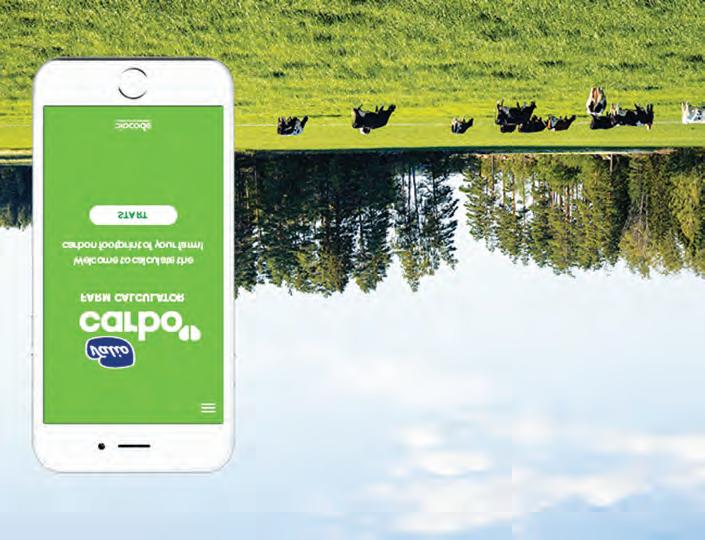S08 AF March_April 2020 Events 1_Layout 1 13/03/2020 15:27 Page 24
EQUIPMENT Digital technologies are impacting the rural farmers in Africa.
Image Credit: Mohamed/Adobe Stock
Smart technological solutions are paving the way for improved quality of life for the rural population of Africa.
Digital ecosystems improving lives of smallholder farmers in Africa
T
ECHNOLOGICAL INNOVATIONS FROM cloud computing, robotics, big data, artificial intelligence (AI), IoT to sensor technology and selfdriving tractors, are contributing in a big way to increase efficiency, improve farming management and optimise farming processes. In the African continent, the impact of various technological developments are being experienced. There are several initiatives in Africa that are helping to bring the benefits of digital technologies to the rural farmers and others. Mobile phone applications As mobile phone usage spreads rapidly across sub-Saharan Africa, the revolution of digitalisation for agriculture in Africa is being fuelled. Entrepreneurs and development organisations are making use of mobile phones to create applications for profitable ventures in areas including agriculture.
To promote meaningful financial inclusion, the UN Capital Development Fund (UNCDF) is engaging with the rural population. Space-related programmes for agriculture Applications are helping Africans work towards Sustainable Development Goals (SDGs), with satellite data already in use by Kenyan maize farmers to monitor crop pests and reduce losses. This Pest Risk Information Service (PRISE), which is backed by the UK Space Agency and the Global Challenges Research Fund, is already operational in Malawi, Rwanda and Zambia. The objective is to identify 24 African Farming - March/April 2020
pests like maize stalk borer before dispatching text message alerts to Plantwise plant doctors. These officials pass on relevant information to farmers in the field. Doctors pass on advice via their network of plant clinics PRISE also aims to empower input suppliers to predict demand more accurately and provide suitable products where they are most urgently needed. Insurance and financing companies should have a more detailed risk assessment picture. A similar project, AfriCultuRes (supported by the European Commission and the Group on Earth Observations), extends the concept to improved monitoring of water availability and productivity, soil moisture detection and crop water requirements assessment and, as well as livestock grazing and rangeland monitoring. AfriCultuReS aims to achieve market readiness quicker than the typical 10 years for this type of technology. Digital services boost rural financing opportunities To promote meaningful financial inclusion, the UN Capital Development Fund (UNCDF) is engaging with the rural population. More than 75 per cent of Ugandans are employed in the agricultural sector. In the context of rural digital finance, the concept of a “booster team� is a dedicated team that supports one or several organisations to distribute their products and services to the last mile population. These products can range from financial services, energy products, digital and financial literacy content or any other sectors. The booster teams are deployed to rural areas to simultaneously register customers, sell mobile handsets, recruit agents,
educate value-chain stakeholders on the benefits of a digital payment ecosystem and train users on the operation of a mobile phone and mobile money. The basic structure of a booster team is detailed in the report. The pilot began in Uganda in 2018 and evolved organically through three main phases. It helped UNCDF to analyse usage data and identify additional gaps and improve approaches for the hardest-toreach demographics. This approach significantly increased penetration in rural areas. These hard-toreach areas often have low population densities, poor roads and scattered economic activities. Nevertheless, UNCDF has made one of the most concerted efforts in the industry to determine what it takes to breach the rural frontier and to make sure no one is left behind in the digital era. Digital ecosystems for utilities Creating a digital ecosystem in rural areas is crucial to provide access to essential utilities such as water and power to the people, thus improving the quality of life This requires collaboration with local suppliers if long-term success is to be achieved, according to Jeremy Potgieter, regional director for Africa at Eseye, a global IoT cellular connectivity and hardware company. According to Potgieter, people living in the rural areas of developing countries face a range of challenges that threaten to isolate them from the benefits that are enjoyed by the rest of their populations. Two major examples include accessing essential utilities such as water and power, as well as the challenges associated with accessing financial services and payment credit. “In an urban area, utilities are www.africanfarming.net






